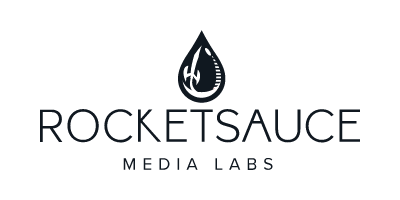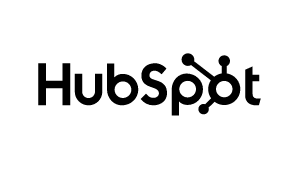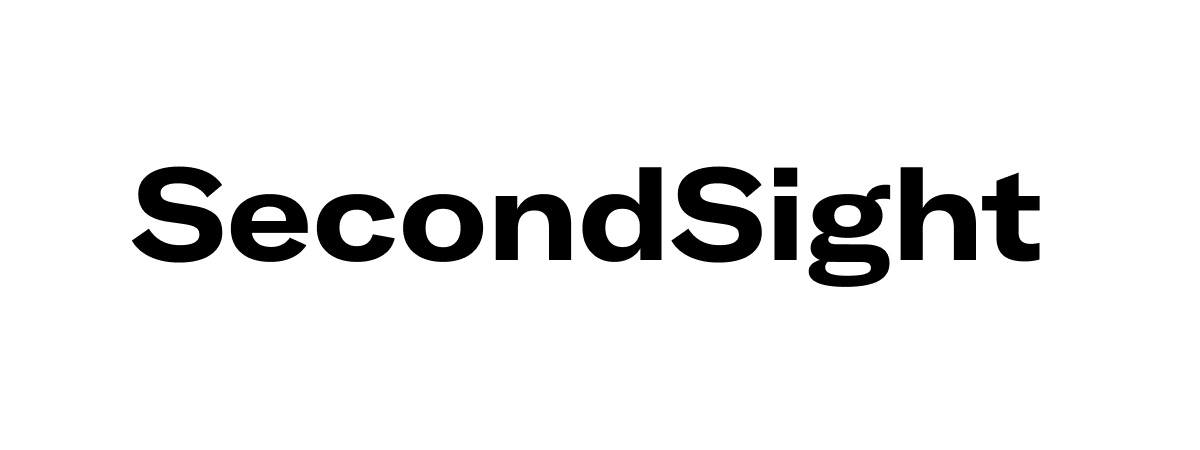(Photo credit: Ged Carroll via Flickr Creative Commons)
It’s almost become blood sport in the past two years, watching Twitter’s stagnant user growth and investor disquiet, and predicting its downfall or outright demise. As competition like Snapchat and Instagram continue to poach both users and advertising spend, observers have grown increasingly pessimistic about Twitter’s once-promising future. Perhaps the most poorly kept secret in technology and marketing — or the most widely held amateur pundit position — is the idea that Twitter’s long-term survival now depends on being acquired by another entity rather than continuing as an independent business.
Those rumors have certainly heated up in the past few weeks. September has been full of speculation that Twitter might finally, after months of conjecture, be sold. Last Friday, CNBC reported that the company was closing in on a deal with potential buyers, sending the company’s stock into a rare upward bounce. The rumor mill has been quote busy as to which suitor is ready to buy; reports have cited everyone from Salesforce.com to Disney to Google among Twitter’s potential new corporate overlords.
If you are a baseball fan, you’ve seen the annual trope where beat writers do ranking or “odds” columns at the trade deadline or the end of a season — listing the teams potentially interested in a particular free agent or player considered trade bait, and giving odds on that team actually trading for or signing said player. I thought it might be fun to do the same for Twitter.
Ignoring for now factors like Twitter’s value (or overvalue) that might impact the asking price or might dissuade a suitor from sealing the deal, and looking only at the business perspective as to whether this acquisition makes business sense, here are Twitter’s potential suitors, along with my armchair odds that they’ll actually do the deal.
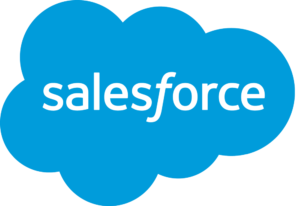
Why they’d buy
Marc Benioff’s company has become a go-to tool for salespeople for prospecting and gaining real-time insights about potential buyers and their thinking and interests; Twitter’s potential use in social selling would seem to fit Salesforce’s model and add value to its users. The data generated by Twitter could augment Salesforce’s own machine learning or AI capabilities. Salesforce already has an arrangement with Twitter to feed its data into the Salesforce analytics offering. And, Salesforce seems to want a social network, having unsuccessfully tried to acquire LinkedIn prior to Microsoft’s buying it (and even after the announcement). This would be a data and AI play for Salesforce.com.
Why they wouldn’t
For starters, their shareholders don’t like the idea; Salesforce’s stock has tumbled a bit since the speculation began in earnest late last week, with one prominent investment analyst calling the idea flat out “dumb.” Salesforce.com is an enterprise-focused company, and Twitter is primarily a customer-facing platform.
But one aspect of this possible move that doesn’t seem to get as much attention as I would have thought is culture fit. Marc Benioff has been not just vocal but active in his opposition to policies he sees as discriminatory against LGBT people — in Indiana, in Georgia, in North Carolina. If he buys “the free speech wing of the free speech party” — a platform on which the trolling and bullying problems are well documented and on which some users vocally, stridently, and even crudely support policies and ideas Benioff finds objectionable, how would he react to that kind of conversation on a platform he owns and is responsible for?
If he tries to clamp down on it or police better against “hateful” rhetoric (and we all know how blurred the line can be as to what constitutes hate speech), he risks alienating the existing user base, violates the founding ethos of Twitter as a place absent of censorship, and creates giant controversy for the brand just as he needs to stimulate it. But if he allows that speech and those conversations to take place, opponents will likely point out that he owns and enables a platform arguably much more damaging to the LGBT community than a bathroom law.
Analysis
This doesn’t seem to be an idea that either Salesforce’s investors are warm to, and it doesn’t really seem to be a fit; Salesforce already has access to the massive amounts of data that Twitter generates. Friday’s speculation seems to have been a trial balloon that has been shot down sufficiently enough to end any serious pursuit.
Odds: 15-1

Why they’d buy
Twitter has pretty much become more of a media platform than a social network anymore, and Disney (like other big media companies) knows this. Twitter has ramped up in the streaming space in a big way lately, introducing apps for Microsoft, Amazon, and Apple device users to stream Twitter content, and has streaming content available from the NFL’s Thursday Night Football, Bloomberg News, Major League Baseball, the Pac-12 Network, the NBA and others. Buying Twitter gives Disney a video distribution platform and would make it a much bigger player in streaming content than it currently is. And frankly, Disney’s sports property, ESPN, hasn’t been doing as well during the audience transition to streaming from cable and broadcast; when sports broadcast rights cost as much as they do to acquire, losing subscribers as users flock to streaming becomes less cost-efficient. Buying Twitter and acquiring its agreements for streaming sports content could be a way to rejuvenate ESPN and establish Disney in the streaming sports world.
Also, there’s the data: All… that… data. Thinking of the insights Disney could glean from Twitter, it might much better and even more accurately inform and focus Disney’s efforts across its entire portfolio. The insights powered from Twitter data could, among other things:
- Give accurate feedback of guests’ Park experiences
- Help with audience feedback on movies and programming, to better inform greenlight decisions on new shows or more quickly determine when it might be time to pull the plug on some programming
- Provide a real-time read on any of Disney’s networks (broadly) or shows (narrowly)
It’s not too big a stretch to understand why Disney or any major media company would be interested in Twitter the media platform, if not the social network.
Why they wouldn’t
Again, to start with, their investors don’t seem happy with the idea; Disney stock declined as the speculation broke, and Citi listed four reasons it believed a Disney acquisition of Twitter was not in Disney’s best interest. There seem to be questions from analysts across the board on just how much value Twitter really provides a buyer and whether it’s overvalued. It’s fair to ask how readily other publishers would provide content to a platform owned by a competitor — which might limit the platform’s value or reach beyond the Disney-owned content it would provide. And, in theory, Disney could already enjoy the reward of distributing even more of its content on Twitter without taking on the risk (and the migraine) of actually owning it and having to run it.
And while Disney-owned networks like Freeform push the envelope of “family” content and the comments fields on ESPN’s articles are sometimes not for the faint of heart, Disney does have its image and brand proposition to consider. How would a company like Disney — so identified with being family-friendly, family-oriented, and so desirous of the “magical” experience being part of its reputation — come to terms with the often controversial or sometimes even toxic Twitter user community, and the documented problems the platform has with trolling, bullying, and even illegal behavior?
Analysis
Disney’s desire — you might well call it a need — for a stronger streaming presence makes this move sensible and on-strategy. Investor skepticism about the value Disney might obtain from Twitter might give the Disney board of directors pause, but this fills a gap in Disney’s arsenal and helps the media giant better arm itself for the 21st century content environment.
Odds: 9-2


Why they’d buy
Google has been tremendously successful in mobile phones and search, but every social media effort it’s undertaken or acquired — from Orkut to Buzz to Dodgeball to Latitude to Google+ — has largely failed, often spectacularly and embarrassingly; they really would like to be a bigger social player than they are. Google has tried to buy Twitter before and has long been rumored to still be quite interested in buying up Twitter. Integrating Twitter fully into the very successful Android might be the elixir Twitter has needed to finally start adding new users again.
Facebook Live and Snapchat have taken a decent bite out of YouTube’s video dominance and pose an ongoing threat to YouTube — and a true community aspect is the biggest thing that the challengers offer that YouTube is really missing; integrating Twitter (and Vine, and Periscope) with YouTube would arm Google for that looming cage match. While Google already integrates Twitter content into search data, a deeper integration would allow Google greater ad revenue and the ability to cross-sell into Twitter. And, Google is more flush with cash than most of the other rumored suitors; even if Twitter is overvalued, Google has the ability to go out and get what it wants.
Why they wouldn’t
First, there’s Google’s own abysmal track record in social, even when it buys platforms that have been relatively healthy at the time of acquisition; a cynic might say that there is no reason to believe that Google won’t utterly botch owning Twitter like it’s botched so many other social efforts. Google might well have decided or recognized by this point that it has forever lost the social networking war to Facebook, and could focus its efforts on its more successful or promising technological pieces of the business. Google also already integrates Twitter content into its search, without needing to own it. Google already has access to mountains of data — far more than any other suitor — and while Twitter’s data would still be beneficial to Google, they just don’t need it as much as other potential buyers. And, there are legitimate questions about how regulators — especially in Europe — would respond to a Google-Twitter behemoth.
Analysis
Twitter has been a sought-after object of Google’s affection virtually almost since its rollout, and the potential integration with YouTube just seems too enticing to see Google passing up. While Jack Dorsey has rebuffed Google before, his company needs a savior right now in order to survive, and he might just give in and go out on this date this time. Of all the potential buyers, Google makes the most sense.
Odds: 5-1


Why they’d buy
They might deny it publicly, but you know that the Chinese internet giants are really, really wanting to find a toehold in western markets, especially America. From a commercial standpoint, Alibaba’s expansion here is probably blocked by Amazon and eBay, so they may be looking at social as a shrewd back door into the market they crave, trying to exploit Twitter somehow as a more commercially-oriented platform to build a path to monetizing established markets as nicely as they have the emerging markets in Asia. From a social standpoint, WeChat didn’t really catch on in the US, and Tencent might look to enter the US market by buying an established player rather than trying to introduce a “foreign” platform.
Why they wouldn’t
The political environment around Chinese ownership of American companies has been at the least interesting over the past year or so. It’s hard to see US regulatory bodies approving this kind of an acquisition to begin with, on national security grounds among others — and depending on what happens in November, we could have a US president who is overtly hostile to globalization and foreign investment. That prospect alone might well be enough to dissuade Alibaba or Tencent from pursuing buying Twitter. Also, it’s easy to see Jack Ma deciding to focus on consolidating and holding on to the dominance he’s built in Asian markets rather than risking a westward expansion effort.
Analysis
The political environment surrounding a Chinese acquisition would be so obstacle-laden and hostile, it’s hard to imagine that even someone as savvy and ambitious as Jack Ma would willingly take it on. Never say never, but I think these are the longest odds in the house.
Odds: 45-1
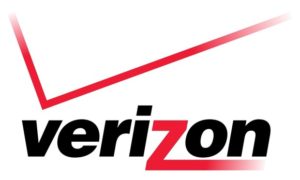
Why they’d buy
For the same reason that Disney would: acquiring a better video distribution platform than it currently has (do you know anyone who uses Go90?). Verizon has been active in acquiring content and distribution networks, buying up AOL in 2015 and announcing plans to acquire Yahoo in July 2016. Also, Verizon needs a new revenue growth strategy. As ubiquitous as mobile is now in the United States, Verizon just won’t be significantly growing revenue via adding subscribers the way it has in the past ten years (they will have to woo users away from AT&T, T-Mobile, and Sprint rather than connecting new users for the first time); a stronger streaming mobile video distribution platform upon which to sell advertising as well as solicit subscribers might well be appealing. If Verizon wants to build a legitimate challenger to Google and Facebook in the realm of digital advertising, Twitter could make an attractive third leg of the stool.
Why they wouldn’t
First, even the most cavalier of spending sprees has limits and must come to an end (unless your surname is Gates, Ma, Buffett, or Zuckerberg); having already bought AOL and Yahoo in the past 15 months, Verizon might be at its limit of what it can realistically take on. Also, while Twitter is admittedly more of a video and media platform than social network anymore, let’s not overstate its presence; Twitter is not so major a player in streaming that Verizon automatically becomes a top contender just by buying it — they’d have to invest a lot in both content and promotion to potential advertisers in order to really be in it for the long haul.
Analysis
Verizon has been on a buying spree in online and wants badly to be a player, but you have to wonder if taking on a third struggling online company is really in its best interests. While it’s not hard to see why Verizon would look seductively in Twitter’s direction, at the end of the day this feels like speculation and a dance floor flirtation… at the end of the night at closing time, both parties are going to get in separate cabs and head home alone. I don’t see this happening.
Odds: 20-1

Why they’d buy
While Facebook has excelled at just about everything and vanquished almost every challenger since its emergence, the one thing Facebook doesn’t do well is the thing that Twitter does best: real-time distribution of and fostering discussion around breaking news. The controversy around their Trending Topics, from allegations of human bias to complaints about the effectiveness of its algorithm, show how far Facebook has to go in this area. One could readily see Zuckerberg buying the one capability he hasn’t yet been able to build or acquire. Also, Facebook is very good at mobile advertising, which is also how Twitter generates revenue. Finally, show me a tycoon who doesn’t like standing over the carcass of a vanquished foe; buying a struggling Twitter now after having been rebuffed during Twitter’s glory days would probably give Zuckerberg a tingly feeling in his special places.
Why they wouldn’t
Facebook hasn’t grokked real-time yet, but there’s no reason to believe that they won’t eventually get there — without needing to spend as much as a Twitter acquisition would cost. Facebook also has less of a problem with abusive trolling and bullying behavior; that is not to say that ugliness doesn’t happen on Facebook by any means, but it has a stronger reputation for trying to police content or behavior on its platform than does Twitter. The free-for-all environment on Twitter, in which bullies and trolls feel that they have the right to behave like schoolyard punks and complain loudly of “censorship” whenever anyone calls them on it or tries to put a stop to it, might be too big a PR headache for Facebook to willingly take on.
Analysis
There’s no reason to suspect that Facebook won’t eventually get the hang of real-time, and there’s as much satisfaction for Mark Zuckerberg in watching Twitter die a slow, drawn-out death as there is in buying it and making the Twitter team kiss his ring. Facebook will keep working on its own real-time capabilities and won’t bother saving Twitter. Not likely to happen.
Odds: 25-1
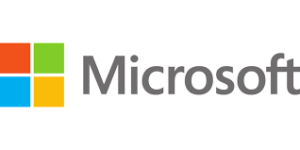
Why they’d buy
Twitter’s long been rumored to be a Microsoft target, the only real reason to think Redmond would still be in the game would be if they harbored a desire to compete in the consumer network space and wanted Twitter to be that entry point. One could also argue that all the data Twitter sits on is an attractive proposition for any company, and that Microsoft could see using Twitter to enhance its data analytics platform.
Why they wouldn’t
Most obviously, because Microsoft is now very much in the enterprise space and Twitter is a consumer facing platform first and foremost. Microsoft just bought LinkedIn, which is a more natural fit as a network that supports enterprise users and provides enterprise users with much more valuable data. Making the LinkedIn acquisition work and integrating it into Microsoft’s enterprise offerings would seem to be a bigger priority.
Analysis
Buying LinkedIn pretty much rendered the Microsoft rumors moot. A Twitter acquisition seems off-strategy for Microsoft, and I don’t see it happening.
Odds: 35-1
Nobody

(photo credit: Luke Chesser via Unsplash)
Why they’d buy
Twitter remains an independent company on its own and sinks or swims on its own merits.
Why they wouldn’t
There’s so much investor pessimism about Twitter’s future — pundits universally call it overvalued, its stock price is stagnant except for buyout rumors, its user growth is negligible — that it might be hard to see anyone’s Board of Directors willingly taking this on. Also, I hate to keep coming back to this, but culture matters; Twitter has such a problem — both in practice and in reputation — with bad user behavior and controversial content that it’s easy to see potential suitors deciding they don’t want to be associated with the kinds of content and conduct seen too often on Twitter. The platform could be seen as a legal liability.
Analysis
This is a very real possibility. For all the speculation about interested parties, there are serious reasons for all those suitors not to buy Twitter, and for any investor to be scared away.
Odds: 10-1






